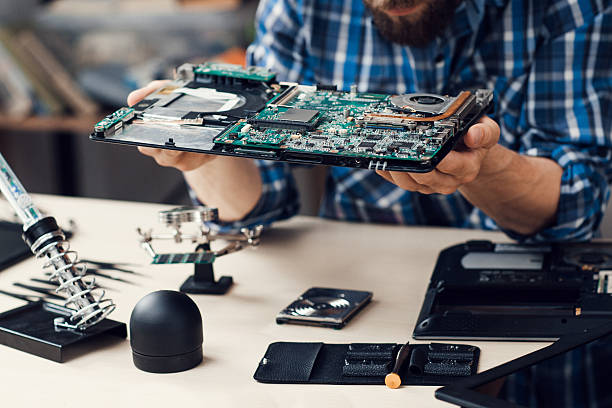Computers are constantly evolving and improving, bringing new technologies and possibilities to our work, learning, entertainment and everyday life. Recent trends in computing indicate that many innovations and changes are likely in the future. In this article, we will look at the latest trends in computers and what we can expect in the near future.
Working at a distance
A new trend in computing, which has become even more pronounced during the pandemic, is the rise of teleworking. This means a great need for improved computing tools to facilitate working from any location. In the future, we are likely to see more powerful laptops as well as work-oriented operating systems and software.
Artificial intelligence and machine learning
Artificial Intelligence (AI) and Machine Learning (ML) are becoming more and more integrated into computer technology. This enriches computers' ability to perform complex tasks, analyse data and help solve problems. AI and ML could improve computer security, personal experience and the ability to automate tasks.
Adult interactions with virtual reality (VR) and augmented reality (AR) technologies
Virtual reality and augmented reality technologies are becoming increasingly popular not only for entertainment, but also for education, design, research and even medicine. In the future, we expect to see more computers dedicated to VR and AR, and new applications and games based on these technologies.
Green technology
As environmental awareness grows, it is expected that in the future computers will be designed to save energy and use green technologies. This may include efficient power supplies, energy saving features and sustainable materials.
Cybersecurity
With the increasing use of the internet, cybersecurity is becoming increasingly important. In the future, computers may have even better cyber security measures, including biometric identification methods, strong encryption protection and automatic threat detection.
5G and the rapid growth of internet connectivity
With the development of the 5G network, computers will become even more powerful and faster, able to perform complex calculations online without delays and provide better connectivity to cloud computing services. This could lead to a rapid growth in the use of cloud computing and new online service models. However, will such powerful computers not have an equivalent increase in the probability of failure?
Are more powerful computers more likely to crash?
Many people think that having a powerful computer reduces the chance of experiencing faults or malfunctions. This may be only partially true, as powerful computers do have their advantages, but they also have their own unique challenges that can lead to crashes or problems. Below we will discuss why more powerful computers are not necessarily more likely to crash and what measures can be taken to avoid such problems.
Powerful computers Advantages:
- Improved productivity: Powerful computers can perform complex calculations and tasks faster, making use more efficient and productive.
- Better views and games: Powerful graphics processors and video cards allow you to enjoy high-quality images and good gaming graphics.
- More frequent updates: More powerful computers are updated more often and support the latest technology, which helps prevent the failure of old components.
Potential problems with more powerful computers
- Higher fuser temperature: More powerful computers often generate more heat, which can increase the temperature of components. If there is no proper cooling system, this can lead to overheated components and failures.
- Software compatibility: Software compatibility issues may arise with newer and more powerful computers. Some old programs may not behave correctly or may not be compatible with new computer components.
- Electricity supply problems: More powerful computers often require more electricity, so it is important that power supplies are properly installed and powerful enough. Insufficient power supply can lead to inactivity or malfunctions.
How to avoid potential problems on more powerful computers
- Ongoing maintenance: Regular computer maintenance, such as dusting and checking the cooling system, can help prevent overheating problems.
- Caution with software: When installing applications, make sure they are compatible with your computer and operating system version.
- Check the power supply: Make sure your computer has enough power and that the power supplies are properly installed.
- Use quality components: When choosing a powerful computer or upgrading components, choose quality products from trusted manufacturers.
More powerful computers can bring many benefits, but they can also have their own problems. It is important to maintain and use these computers properly to avoid breakdowns and ensure a long service life.
Recent computer trends promise even more possibilities and efficiency in our computing lives. This is a good sign that we can expect even more dynamic and convenient computing in the future, meeting our ever-changing needs. But with innovation comes new challenges, including security concerns and environmental requirements, which will also need to be addressed.








